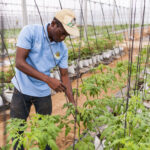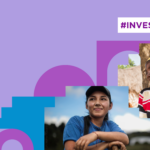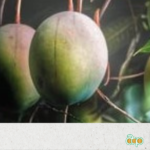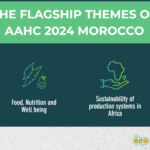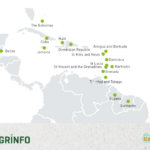World Environment Day 2023: Climate-Resilient Practices and Innovations in the Fruit & Vegetable Industry
- 05/06/2023
- Posted by: Sandra Borma
- Category: ACP EN, Corp EN, News

Each year, World Environment Day focuses global attention on pressing environmental challenges and celebrates actions that create a more sustainable world. The impacts of climate change have emerged as one of the most devastating factors contributing to environmental degradation, while the leading causes of climate change, such as fossil fuel extraction and deforestation, directly harm the environment. Increasing intensity and frequency of extreme weather events, temperature anomalies, and natural resource depletion are causing vulnerable communities and ecosystems to face challenges such as desertification, loss of biodiversity, poor air and water quality, and the loss of viable landscapes.
One significant contributor to climate change is industrialized food production. However, the sector itself is also threatened by climate change, with volatile and unpredictable seasons, loss of fertile agricultural lands, and increased susceptibility of crops to pests and diseases, leading to lower yields. This has critical implications for food production, food safety, and food security. The fourth session of the COLEAD-OECD Fruit and Vegetable (F&V) Industry Series provided an opportunity to address the challenges, solutions, and innovations regarding the impact of climate change on the production and quality of fruits and vegetables. Panellists shared insights into policies that foster climate change adaptation and resilience, along with country-specific case studies on mitigating measures. Private sector operators presented their successful implementation of innovations and farming approaches designed to cope with the effects of climate change. These approaches range from resilient practices that build soil organic matter and increase soil coverage to diversifying crops and varieties, ensuring they are suitable for appropriate agroecological zones. Practices to safeguard facilities and increase freshwater reservoirs are also implemented to protect infrastructure against extreme weather. The operators also recognized the importance of a sustainable business model that supports those working in the value chain. This includes guaranteeing a fair living wage and offering services that build the capacity of actors to grow and process food in an environmentally friendly manner.
COLEAD’s mission is to facilitate and implement all actions that directly and/or indirectly increase the contribution of the agricultural sector, particularly horticulture, to the achievement of the Sustainable Development Goals (SDGs). COLEAD drives and supports sustainable production through technical assistance and guides on various aspects of production, such as sustainable production guides, pest management good practice guides, and plant health measures. Training courses, including the e-Learning platform, are supplemented by tailored coaching and onsite support to address partner-beneficiaries with specific challenges and maximize the impact of the training packages. The Sustainability Self-Assessment System (SAS) developed by COLEAD provides users with an overview of their performance in key areas of sustainability and focuses on promoting good practices for commercial, social, and environmental benefits at the production level. COLEAD also organizes online webinars in collaboration with partner organizations, creating a space for sharing good agricultural practices.

